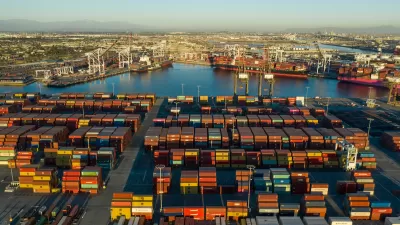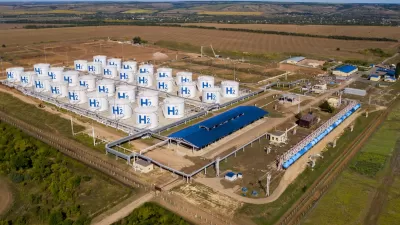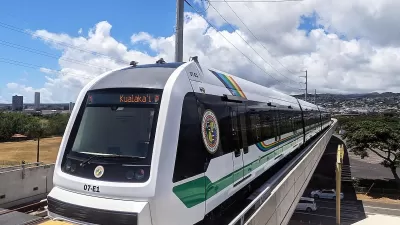Florida isn't getting high speed rail, but it will soon have a deeper port that's able to accept more shipments.
But federal funding for the project is still uncertain.
"[T]ransportation dollars are already playing a huge role in the port's expansion. The TIGER II stimulus program provided $22.7 million to help rebuild the port's freight rail connection, and construction has already started on a $610 million tunnel that will obviate what is now a parade of containers through downtown Miami, as trucks make their way to Interstate 95.
Both projects are on track to be completed in 2014, the year the Panama Canal expansion opens. State and local governments have already come up with financing for the tunnel, their half of the dredging, and ancillary tasks like strengthening retaining walls and installing newer, wider, taller cranes. The federal share of the dredging funds-a relatively small sum of $77 million-is the last and the most important piece of the puzzle. The necessary studies have been done, and there's not much time to wait."
FULL STORY: A Man, A Plan, a Canal—Miami

Maui's Vacation Rental Debate Turns Ugly
Verbal attacks, misinformation campaigns and fistfights plague a high-stakes debate to convert thousands of vacation rentals into long-term housing.

Planetizen Federal Action Tracker
A weekly monitor of how Trump’s orders and actions are impacting planners and planning in America.

San Francisco Suspends Traffic Calming Amidst Record Deaths
Citing “a challenging fiscal landscape,” the city will cease the program on the heels of 42 traffic deaths, including 24 pedestrians.

Defunct Pittsburgh Power Plant to Become Residential Tower
A decommissioned steam heat plant will be redeveloped into almost 100 affordable housing units.

Trump Prompts Restructuring of Transportation Research Board in “Unprecedented Overreach”
The TRB has eliminated more than half of its committees including those focused on climate, equity, and cities.

Amtrak Rolls Out New Orleans to Alabama “Mardi Gras” Train
The new service will operate morning and evening departures between Mobile and New Orleans.
Urban Design for Planners 1: Software Tools
This six-course series explores essential urban design concepts using open source software and equips planners with the tools they need to participate fully in the urban design process.
Planning for Universal Design
Learn the tools for implementing Universal Design in planning regulations.
Heyer Gruel & Associates PA
JM Goldson LLC
Custer County Colorado
City of Camden Redevelopment Agency
City of Astoria
Transportation Research & Education Center (TREC) at Portland State University
Jefferson Parish Government
Camden Redevelopment Agency
City of Claremont





























